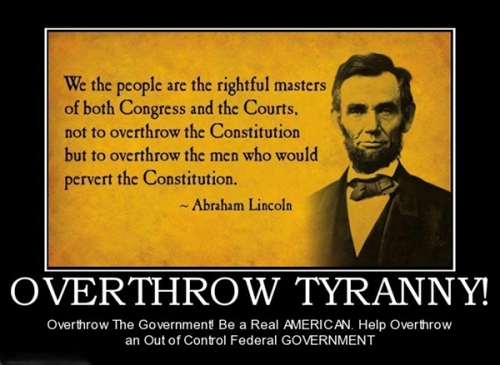This article by Steve Silverman originally appeared April 5, 2012 in Reason.com. It’s been updated to include new information regarding the 7th Circuit’s recent ruling in favor of citizens’ right to record.
 Last week the City of Boston agreed to pay Simon Glik $170,000 in damages and legal fees to settle a civil rights lawsuit stemming from his 2007 felony arrest for videotaping police roughing up a suspect. Prior to the settlement, the First Circuit Court of Appeals unanimously ruled that Glik had a “constitutionally protected right to videotape police carrying out their duties in public.” The Boston Police Department now explicitly instructs its officers not to arrest citizens openly recording them in public.
Last week the City of Boston agreed to pay Simon Glik $170,000 in damages and legal fees to settle a civil rights lawsuit stemming from his 2007 felony arrest for videotaping police roughing up a suspect. Prior to the settlement, the First Circuit Court of Appeals unanimously ruled that Glik had a “constitutionally protected right to videotape police carrying out their duties in public.” The Boston Police Department now explicitly instructs its officers not to arrest citizens openly recording them in public.
Slowly but surely the courts are recognizing that recording on-duty police is a protected First Amendment activity. But in the meantime, police around the country continue to intimidate and arrest citizens for doing just that. So if you’re an aspiring cop watcher you must be uniquely prepared to deal with hostile cops.
If you choose to record the police you can reduce the risk of terrible legal consequences and video loss by understanding your state’s laws and carefully adhering to the following rules.
Rule #1: Know the Law (Wherever You Are)
Conceived at a time when pocket-sized recording devices were available only to James Bond types, most eavesdropping laws were originally intended to protect people against snoops, spies, and peeping Toms. Now with this technology in the hands of average citizens, police and prosecutors are abusing these outdated laws to punish citizens merely attempting to document on-duty police.
The law in 38 states plainly allows citizens to record police, as long as you don’t physically interfere with their work. Police might still unfairly harass you, detain you, or confiscate your camera. They might even arrest you for some catchall misdemeanor such as obstruction of justice or disorderly conduct. But you will not be charged for illegally recording police.
Twelve states—California, Connecticut, Florida, Illinois, Maryland, Massachusetts, Michigan, Montana, Nevada, New Hampshire, Pennsylvania, and Washington—require the consent of all parties for you to record a conversation. But do not despair if you live in these states: All but 2 —Massachusetts and Illinois—have an “expectation of privacy provision” to their all-party laws that courts have ruled does not apply to on-duty police (or anyone in public). In other words, it’s technically legal in those 48 states to openly record on-duty police.
UPDATE: As mentioned earlier, the First Circuit Court of Appeals covering Massachusetts declared the state’s ban on recording police to be unconstitutional. On May 8, The Seventh Circuit Court of Appeals covering Illinois also declared the state’s harsh recording ban unconstitutional, ordering authorities to stop enforcing it.
Rule #2 Don’t Secretly Record Police
In most states it’s almost always illegal to record a conversation in which you’re not a party and don’t have consent to record. Massachusetts is the only state to uphold a conviction for recording on-duty police, but that conviction was for a secret recording where the defendant failed to inform police he was recording. (As in the Glik case, Massachusetts courts have ruled that openly recording police is legal, but secretly recording them isn’t.)
Fortunately, judges and juries are soundly rejecting these laws. Illinois, the state with the most notorious anti-recording laws in the land, expressly forbids you from recording on-duty police. Early last month an Illinois judge declared that law unconstitutional, ruling in favor of Chris Drew, a Chicago artist charged with felony eavesdropping for secretly recording his own arrest. Last August a jury acquitted Tiawanda Moore of secretly recording two Chicago Police Internal Affairs investigators who encouraged her to drop a sexual harassment complaint against another officer. (A juror described the case to a reporter as “a waste of time.”) In September, an Illinois state judge dropped felony charges against Michael Allison. After running afoul of local zoning ordinances, he faced up to 75 years in prison for secretly recording police and attempting to tape his own trial.
The lesson for you is this: If you want to limit your legal exposure and present a strong legal case, record police openly if possible. But if you videotape on-duty police from a distance, such an announcement might not be possible or appropriate unless police approach you.
Rule #3: Respond to “Shit Cops Say”
When it comes to police encounters, you don’t get to choose whom you’re dealing with. You might get Officer Friendly, or you might get Officer Psycho. You’ll likely get officers between these extremes. But when you “watch the watchmen,” you must be ready to think on your feet.
In most circumstances, officers will not immediately bull rush you for filming them. But if they aren’t properly trained, they might feel like their authority is being challenged. And all too often police are simply ignorant of the law. Part of your task will be to convince them that you’re not a threat while also standing your ground.
“What are you doing?”
Police aren’t celebrities, so they’re not always used to being photographed in public. So even if you’re recording at a safe distance, they might approach and ask what you are doing. Avoid saying things like “I’m recording you to make sure you’re doing your job right” or “I don’t trust you.”
Instead, say something like “Officer, I’m not interfering. I’m asserting my First Amendment rights. You’re being documented and recorded offsite.”
Saying this while remaining calm and cool will likely put police on their best behavior. They might follow up by asking, “Who do you work for?” You may, for example, tell them you’re an independent filmmaker or a citizen journalist with a popular website/blog/YouTube show. Whatever you say, don’t lie—but don’t let police trick you into thinking that the First Amendment only applies to mainstream media journalists. It doesn’t.
“Let me see your ID.”
In the United States there’s no law requiring you to carry a government ID. But in 24 states police may require you to identify yourself if they have reasonable suspicion that you’re involved in criminal activity.
But how can you tell if an officer asking for ID has reasonable suspicion? Police need reasonable suspicion to detain you, so one way to tell if they have reasonable suspicion is to determine if you’re free to go. You can do this by saying “Officer, are you detaining me, or am I free to go?”
If the officer says you’re free to go or you’re not being detained, it’s your choice whether to stay or go. But if you’re detained, you might say something like, “I’m not required to show you ID, but my name is [your full name].” It’s up to you if you want to provide your address and date of birth if asked for it, but I’d stop short of giving them your Social Security number.
“Please stop recording me. It’s against the law.”
Rarely is it advisable to educate officers about the law. But in a tense recording situation where the law is clearly on your side, it might help your case to politely present your knowledge of state law.
For example, if an insecure cop tries to tell you that you’re violating his civil liberties, you might respond by saying “Officer, with all due respect, state law only requires permission from one party in a conversation. I don’t need your permission to record so long as I’m not interfering with your work.”
If you live in one of the 12 all party record states, you might say something like “Officer, I’m familiar with the law, but the courts have ruled that it doesn’t apply to recording on-duty police.”
If protective service officers harass you while filming on federal property, you may remind them of a recently issued directive informing them that there’s no prohibition against public photography at federal buildings.
“Stand back.”
If you’re approaching the scene of an investigation or an accident, police will likely order you to move back. Depending on the circumstances, you might become involved in an intense negotiation to determine the “appropriate” distance you need to stand back to avoid “interfering” with their work.
If you feel you’re already standing at a reasonable distance, you may say something like, “Officer, I have a right to be here. I’m filming for documentation purposes and not interfering with your work.” It’s then up to you to decide how far back you’re willing to stand to avoid arrest.
Rule #4: Don’t Share Your Video with Police
If you capture video of police misconduct or brutality, but otherwise avoid being identified yourself, you can anonymously upload it to YouTube. This seems to be the safest legal option. For example, a Massachusetts woman who videotaped a cop beating a motorist with a flashlight posted the video to the Internet. Afterwards, one of the cops caught at the scene filed criminal wiretapping charges against her. (As usual, the charges against her were later dropped.)
On the other hand, an anonymous videographer uploaded footage of an NYPD officer body-slamming a man on a bicycle to YouTube. Although the videographer was never revealed, the video went viral. Consequently, the manufactured assault charges against the bicyclist were dropped, the officer was fired, and the bicyclist eventually sued the city and won a $65,000 settlement.
Rule #5: Prepare to be Arrested
Keene, New Hampshire resident Dave Ridley is the avatar of the new breed of journalist/activist/filmmaker testing the limits of the First Amendment right to record police. Over the past few years he’s uploaded the most impressive collection of first-person police encounter videos I’ve ever seen.
Ridley’s calm demeanor and knowledge of the law paid off last August after he was arrested for trespassing at an event featuring Vice President Joe Biden. The arresting officers at his trial claimed he refused to leave when ordered to do so. But the judge acquitted him when his confiscated video proved otherwise.
With respect to the law Ridley declares, “If you’re rolling the camera, be very open and upfront about it. And look at it as a potential act of civil disobedience for which you could go to jail.” It’s indeed disturbing that citizens who are not breaking the law should prepare to be arrested, but in the current legal fog this is sage advice.
“Shut it off, or I’ll arrest you.”
At this point you are risking arrest in order to test the boundaries of free speech. So if police say they’ll arrest you, believe them. You may comply by saying something like “Okay, Officer. But I’m turning the camera off under protest.”
If you keep recording, brace yourself for arrest. Try your best not to drop your camera, but do not physically resist. As with any arrest, you have the right to remain silent until you speak with a lawyer. Use it.
Remember that the camera might still be recording. So keep calm and act like you’re being judged by a jury of millions of your YouTube peers, because one day you might be.
Rule #6: Master Your Technology
Smartphone owners now outnumber users of more basic phones. At any moment there are more than 100 million Americans in reach of a device that can capture police misconduct and share it with the world in seconds.
If you’re one of them, you should consider installing a streaming video recording and sharing app such as Qik or Bambuser. Both apps are free and easy to use.
Always Passcode Protect Your Smartphone
The magic of both apps is that they can instantly store your video offsite. This is essential for preserving video in case police illegally destroy or confiscate your camera. But even with these apps installed, you’ll want to make sure that your device is always passcode protected. If a cop snatches your camera, this will make it extremely difficult for her to simply delete your videos. (If a cop tries to trick you into revealing your passcode, never, never, never give it up!)
Keep in mind that Qik and Bambuser’s offsite upload feature might be slow or nonexistent in places without Wi-Fi or a strong 3G/4G signal. Regardless, your captured video will be saved locally on your device until you’ve got a good enough signal to upload offsite.
Set Videos to “Private”
Both apps allow you to set your account to automatically upload videos as “private” (only you can see them) or “public” (everyone can see them). But until police are no longer free toraid the homes of citizens who capture and upload YouTube videos of them going berserk, it’s probably wise to keep your default setting to “private.”
With a little bit of practice you should be able to pull your smartphone from your pocket or purse, turn it on, enter your passcode, open the app, and hit record within 10 seconds. Keep your preferred app easily accessible on your home screen to save precious seconds. But don’t try to shave milliseconds off your time by disabling your passcode.
Both apps share an important feature that allows your video to be saved if your phone is turned off put to sleep—even if you’re still recording. So if you anticipate that a cop is about to grab your phone, quickly tap the power button to put it to sleep. Without your passcode, police won’t be able to delete your videos or personal information even if they confiscate or destroy your phone.
With the iPhone 4 and Samsung Galaxy Android devices I tested, when the phone is put to sleep the Qik app immediately stops recording and uploads the video offsite. But if the phone is put to sleep while Bambuser records, the recording continues after the screen goes black.
This Bambuser “black out” feature is a double-edged sword. While it could easily trick cops into thinking you’re not recording them, using it could push you into more dangerous legal territory. As previously mentioned, courts have shown a willingness to convict citizens for secretly recording police. So if you’re somehow caught using this feature it might be easier for a prosecutor to convince a judge or jury that you’ve broken the law. It’s up to you to decide if the increased legal risk is worth the potential to capture incriminating police footage.
Other Recording Options
Cameras lacking offsite recording capability are a less desirable option. As mentioned earlier, if cops delete or destroy your footage—which happens way too often—you might lose your only hope of challenging their version of events in court. But if you can hold on to your camera, there are some good options.
Carlos Miller is a Miami-based photojournalism activist and writer of the popular Photography is Not a Crime blog. While he carries a professional-end Canon XA10 in the field, he says “I never leave home without a Flip camera on a belt pouch. It’s a very decent camera that’s easier to carry around.”
The top-of-the-line Flip UltraHD starts at $178, but earlier models are available for $60 on Amazon. All flip models have one-button recording, which allows you to pull it out of your pocket and shoot within seconds. The built-in USB then lets you upload video to YouTube or other sharing sites through your PC.
Small businessman and “radical technology” educator Justin Holmes recommends the Canon S-series line of cameras. In 2008, his camera captured a police encounter he had while rollerblading in Port Dickenson, New York. His footage provides an outstanding real-life example of how a calm camera-toting citizen can intelligently flex their rights.
“I typically carry a Canon S5-IS,” Holmes says. “But if I was going to buy one new, I’d go for the SX40-HS. If I were on a budget and buying one used, I’d go for S2-IS or S3-IS.” The features he regards as essential include one-touch video, high-quality stereo condenser microphones, fast zoom during video, and 180×270 variable angle LCD. But the last feature he regards as “absolutely essential.” With it the user can glance at the viewfinder while the camera is below or above eye level.
Rule #7: Don’t Point Your Camera Like a Gun
“When filming police you always want to avoid an aggressive posture,” insists Holmes. To do this he keeps his strap-supported camera close to his body at waist level. This way he can hold a conversation while maintaining eye contact with police, quickly glancing at the viewfinder to make sure he’s getting a good shot.
Obviously, those recording with a smartphone lack this angled viewfinder. But you can get a satisfactory shot while holding your device at waist level, tilting it upward a few degrees. This posture might feel awkward at first, but it’s noticeably less confrontational than holding the camera between you and the officer’s face.
Also try to be in control of your camera before an officer approaches. You want to avoid suddenly grasping for it. If a cop thinks you’re reaching for a gun, you could get shot.
Becoming a Hero
If you’ve recently been arrested or charged with a crime after recording police, contact a lawyer with your state’s ACLU chapter for advice as soon as possible. (Do not publicly upload your video before then.) If your case is strong, the ACLU might offer to take you on as a litigant. If you accept, your brave stand could forever change the way police treat citizens asserting their First Amendment right to record police. This path is not for fools, and it might disrupt your life. But next time you see police in action, don’t forget that a powerful tool for truth and justice might literally be in your hands.
 In the mainstream media, you’ll read headings that titillate or that simply state “New Jersey Man Ordered to Pay Child Support for 1 Twin After DNA Test Shows 2 Dads.” The truth is that this kind of behavior is a national embarrassment! So potentially embarrassing that the lawsuit represents the plaintiff and defendant only as initials. The ‘mother’ should certainly be embarrassed. The details and headlines for child support continue to get stranger as time wears on. That is what happens in a nation without standards.
In the mainstream media, you’ll read headings that titillate or that simply state “New Jersey Man Ordered to Pay Child Support for 1 Twin After DNA Test Shows 2 Dads.” The truth is that this kind of behavior is a national embarrassment! So potentially embarrassing that the lawsuit represents the plaintiff and defendant only as initials. The ‘mother’ should certainly be embarrassed. The details and headlines for child support continue to get stranger as time wears on. That is what happens in a nation without standards. The mother, identified only as “T.M.” gave birth to twin girls in January of 2013 and named “A.S.” as a romantic partner and the father of both kids when applying for public assistance. Of note is that she admitted that she had sex with another unidentified man ‘within a week’ of having had sex with “A.S.” Obviously, the woman couldn’t keep her legs together and wisely, social services ordered a DNA test with the “surprising results.”
The mother, identified only as “T.M.” gave birth to twin girls in January of 2013 and named “A.S.” as a romantic partner and the father of both kids when applying for public assistance. Of note is that she admitted that she had sex with another unidentified man ‘within a week’ of having had sex with “A.S.” Obviously, the woman couldn’t keep her legs together and wisely, social services ordered a DNA test with the “surprising results.”
 Here is the latest scuttlebutt about corporate discomfort in dealing with child support provisions, and as usual, it’s always about the money for the corporate system. It’s certainly isn’t about privacy or about who really wants the information, some of it highly personal and confidential.
Here is the latest scuttlebutt about corporate discomfort in dealing with child support provisions, and as usual, it’s always about the money for the corporate system. It’s certainly isn’t about privacy or about who really wants the information, some of it highly personal and confidential. Last week the City of Boston agreed to pay Simon Glik $170,000 in damages and legal fees to settle a civil rights lawsuit stemming from his 2007 felony arrest for videotaping police roughing up a suspect. Prior to the settlement, the First Circuit Court of Appeals unanimously ruled that Glik had a “constitutionally protected right to videotape police carrying out their duties in public.” The Boston Police Department now explicitly instructs its officers not to arrest citizens openly recording them in public.
Last week the City of Boston agreed to pay Simon Glik $170,000 in damages and legal fees to settle a civil rights lawsuit stemming from his 2007 felony arrest for videotaping police roughing up a suspect. Prior to the settlement, the First Circuit Court of Appeals unanimously ruled that Glik had a “constitutionally protected right to videotape police carrying out their duties in public.” The Boston Police Department now explicitly instructs its officers not to arrest citizens openly recording them in public.

 A host of new laws related to child support take effect this week, according to the State Department of Human Services. These changes are designed to help track down people not paying their child support obligations.
A host of new laws related to child support take effect this week, according to the State Department of Human Services. These changes are designed to help track down people not paying their child support obligations. Parents of missing children and the child rights lobby are calling on the IRS
Parents of missing children and the child rights lobby are calling on the IRS